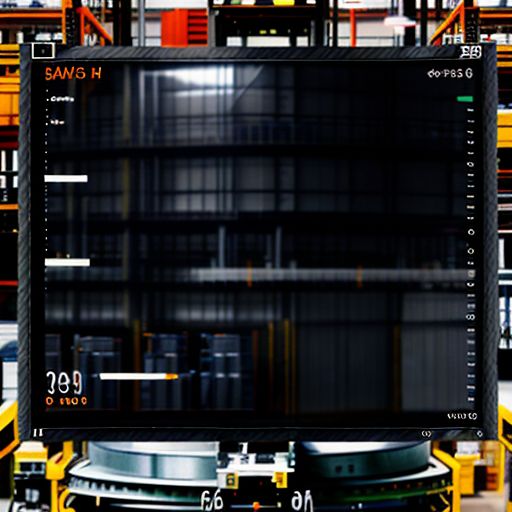In today’s competitive landscape, manufacturers are constantly seeking ways to optimize their operations, reduce costs, and enhance efficiency. Enterprise Resource Planning (ERP) software has emerged as a critical solution, providing a centralized system to manage various business processes. But with numerous options available, choosing the right ERP software for your manufacturing business can be daunting. This comprehensive guide delves into the top ERP software solutions specifically designed to address the unique challenges faced by manufacturers.
Understanding the Importance of ERP Software in Manufacturing
ERP software integrates all facets of a manufacturing operation, from supply chain management and production planning to inventory control and financial accounting. By streamlining these processes, manufacturers can gain real-time visibility into their operations, improve collaboration between departments, and make data-driven decisions.
Key Benefits of ERP for Manufacturers:
- Enhanced Production Planning and Scheduling: ERP systems provide tools for accurate forecasting, capacity planning, and material requirements planning (MRP), ensuring timely production and reduced lead times.
- Optimized Inventory Management: Real-time inventory tracking, automated replenishment, and improved warehouse management capabilities minimize carrying costs and prevent stockouts.
- Streamlined Supply Chain Operations: ERP systems facilitate seamless communication with suppliers, track orders, and manage logistics, leading to improved supplier relationships and reduced supply chain disruptions.
- Increased Productivity and Efficiency: Automation of routine tasks, improved data accuracy, and streamlined workflows free up valuable time and resources, allowing employees to focus on higher-value activities.
- Better Cost Control: By providing a centralized view of financial data, ERP systems empower manufacturers to track costs, identify areas for improvement, and make informed decisions to optimize profitability.
Top Erp Software For Manufacturing: A Detailed Look
erp.cungphuthe.com/wp-content/uploads/2024/07/erp-software-dashboard-669361.jpg" alt="Manufacturing ERP Dashboard" width="512" height="512">Manufacturing ERP Dashboard
The following ERP solutions stand out for their comprehensive features, industry-specific functionalities, and proven track records in the manufacturing sector:
1. SAP S/4HANA
As a global leader in ERP software, SAP offers a robust suite of solutions tailored for various industries, including manufacturing. SAP S/4HANA is their next-generation ERP system, designed to leverage advanced technologies like artificial intelligence (AI) and machine learning (ML) to provide intelligent automation and real-time insights.
Key Features:
- Intelligent Manufacturing Execution: Real-time shop floor control, quality management, and production performance monitoring.
- Predictive Maintenance: AI-powered insights to anticipate equipment failures and optimize maintenance schedules.
- Supply Chain Collaboration: Enhanced visibility and collaboration throughout the supply chain, from raw materials to finished goods.
2. Oracle NetSuite
NetSuite by Oracle is a cloud-based ERP system widely recognized for its scalability and comprehensive functionalities. Its suite of manufacturing modules caters to the needs of businesses of all sizes, from small startups to large enterprises.
Key Features:
- Flexible Deployment Options: Available as a cloud-based, on-premise, or hybrid solution to meet specific business requirements.
- Integrated Financial Management: Real-time financial reporting, budgeting, and forecasting capabilities.
- Customer Relationship Management (CRM): Built-in CRM features to manage customer interactions, sales orders, and after-sales service.
3. Microsoft Dynamics 365
Microsoft Dynamics 365 offers a suite of cloud-based business applications, including ERP and CRM solutions. Dynamics 365 for Finance and Operations is a comprehensive ERP system designed to streamline operations, automate tasks, and improve decision-making.
Key Features:
- Industry-Specific Functionality: Specialized modules for discrete, process, and lean manufacturing environments.
- Connected Field Service: Integration with field service management tools to improve customer service and optimize maintenance operations.
- Business Intelligence and Analytics: Powerful reporting and analytics dashboards to gain actionable insights from data.
4. Infor CloudSuite Industrial (SyteLine)
Infor CloudSuite Industrial, formerly known as SyteLine, is a cloud-based ERP system specifically designed for manufacturers. It caters to the needs of various manufacturing modes, including make-to-order, make-to-stock, engineer-to-order, and mixed-mode manufacturing.
Key Features:
- Industry-Specific Expertise: Deep industry knowledge and best practices built into the software.
- Advanced Planning and Scheduling: Robust tools for forecasting, capacity planning, and production scheduling.
- Quality Management: Comprehensive quality control features to ensure compliance and improve product quality.
5. Epicor Kinetic
Epicor Kinetic is a cloud-based ERP system designed to help manufacturers grow and adapt to changing market demands. It offers a modular approach, allowing businesses to choose the functionalities they need and scale as their operations expand.
Key Features:
- Industry-Specific Editions: Tailored solutions for automotive, fabricated metal, industrial machinery, and other manufacturing sectors.
- Global Trade Compliance: Features to manage international trade regulations, tariffs, and compliance requirements.
- Mobile Accessibility: Access critical business data and perform tasks from mobile devices, improving operational agility.
Choosing the Right ERP Software: Factors to Consider
Selecting the right ERP software requires careful consideration of your specific business requirements, budget, and long-term goals. Here are some essential factors to consider during the selection process:
- Industry Fit: Choose a solution with industry-specific functionalities and best practices aligned with your manufacturing processes.
- Deployment Model: Decide between cloud-based, on-premise, or hybrid deployment options based on your IT infrastructure, budget, and security needs.
- Scalability and Flexibility: Ensure the ERP system can accommodate your business growth and adapt to changing market demands.
- Integration Capabilities: Consider its ability to integrate with existing systems, such as CRM, e-commerce platforms, and other business applications.
- Cost and Implementation: Evaluate the total cost of ownership, including software licenses, implementation fees, training costs, and ongoing maintenance.
Conclusion: Investing in Success with the Right ERP Solution
Implementing the right ERP software can be a game-changer for manufacturing businesses. By streamlining operations, improving efficiency, and empowering data-driven decision-making, manufacturers can gain a significant competitive advantage in today’s dynamic market.
Carefully assess your business needs, research the top ERP software solutions available, and choose the one that aligns best with your long-term goals. Investing in the right ERP system is an investment in your manufacturing business’s future success.
We encourage you to share your thoughts, questions, or experiences with ERP software in the comments section below. For further exploration, browse our website for more insightful articles on manufacturing technology and best practices.
